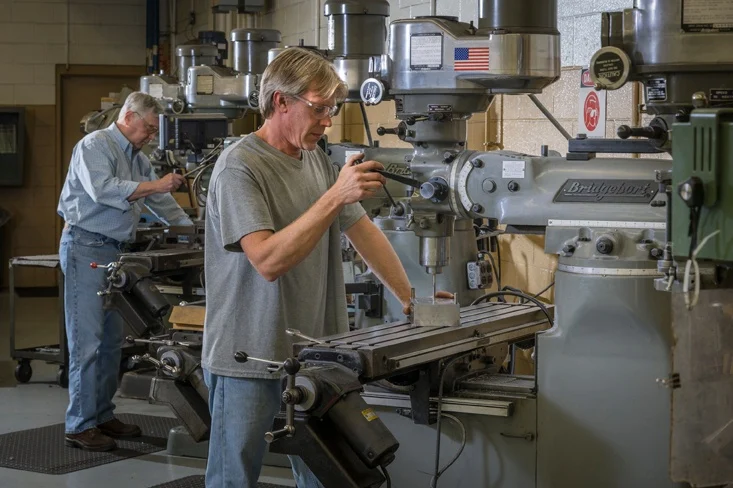Whenever you purchase a physical product from the market, it has undergone a manufacturing process. Manufacturing is the backbone of many industries worldwide, creating the products we use daily. If you’re considering starting a manufacturing business, it’s crucial to weigh the manufacturing business advantages and disadvantages to make an informed decision. This article explores these aspects in detail, helping you understand whether this business path suits you.
Advantages of Manufacturing Businesses
1. Steady Demand
Manufacturing plays a critical role in both the economy and daily life, ensuring a consistent demand for its products. Since manufacturing companies provide essential items, the demand for their products tends to be steady and predictable. This stability offers a reliable flow of revenue, allowing businesses to plan long-term, invest in operations, and innovate with greater confidence. The steady demand is a significant advantage of the manufacturing business, providing a solid foundation for growth and stability.
2. High Profits
One of the notable benefits of manufacturing is the potential for high profits. As production scales up, the cost per unit decreases, and high-quality products can command higher prices. This means that businesses can enjoy increased profit margins. Additionally, refining production processes and reducing waste can further enhance profitability. For sectors with growth potential, profits can expand significantly over time, making manufacturing a lucrative business opportunity.
3. The Use of Technology
The manufacturing industry is often at the forefront of adopting new technologies, which can dramatically enhance production efficiency and product quality. Advanced tools, such as automation, robotics, and sophisticated software, can speed up production processes and improve output quality. Embracing these technologies helps manufacturers stay competitive and deliver high-quality products, making it a crucial advantage of the manufacturing business.
4. Control Over Production
Having control over the entire production process is a significant advantage for manufacturers, especially when quality and customization are priorities. Managing everything from raw materials to the final product ensures that each item meets the company’s standards and aligns with its values. This level of control allows businesses to maintain high quality and consistency, which is essential for building a strong brand and customer trust.
5. Ability to Scale
As your manufacturing business grows, you have the ability to scale operations to meet increased demand. Scaling can involve expanding production capacity, introducing new products, or entering new markets. This flexibility helps businesses adapt to changing market conditions and seize new opportunities. The ability to scale is a vital advantage, ensuring that your business can thrive and remain competitive in a dynamic environment.
6. Diversifying Products and Markets
A robust manufacturing operation enables diversification in both products and markets. Diversification is a strategic approach to reducing risk by broadening your product range and exploring new geographic areas. By doing so, you can reach new customers and mitigate the impact of market fluctuations in any one segment. This strategic advantage helps ensure long-term business sustainability and growth.
Disadvantages of Manufacturing Businesses
1. High Costs to Start and Operate
Starting a manufacturing business involves significant initial investments in machinery, technology, and facilities. Additionally, ongoing costs for equipment maintenance, raw materials, and labor can be substantial. These high expenses can impact profitability, especially in the early stages of the business. It’s essential to have a well-thought-out financial plan to manage these costs and ensure the business remains financially viable.
2. Rules and Regulations
Manufacturing businesses must adhere to numerous regulations designed to ensure safety, quality, and environmental protection. Navigating these regulations can be complex and challenging. Non-compliance can result in hefty fines, legal issues, and damage to your business reputation. Understanding and following these regulations is crucial for avoiding potential pitfalls and maintaining a reputable operation.
3. Risk of Outdated Technology
The rapid pace of technological advancement means that today’s cutting-edge technology may become obsolete quickly. This can lead to inefficiencies or necessitate costly upgrades to stay competitive. While staying current with technology is essential, it also presents financial risks that need careful management. Balancing technological investment with practical business needs is a critical consideration for manufacturing businesses.
4. Problems with Supply Chains
Manufacturing businesses often rely on global supply chains for materials and components. This reliance can lead to challenges such as delivery delays, higher costs, or quality issues, particularly if suppliers are located in politically or economically unstable regions. Developing a robust supply chain strategy is essential to mitigate these risks and ensure a smooth manufacturing process.
5. Competition in the Market
The manufacturing sector is highly competitive, with many businesses vying for market share. Intense competition often leads to price reductions, which can erode profit margins. To succeed, manufacturers must continually innovate, improve efficiency, and differentiate their products from competitors. Staying ahead in a competitive market requires constant effort and strategic planning.
Final Thoughts
In conclusion, understanding the manufacturing business advantages and disadvantages is crucial for anyone considering entering this field. While manufacturing offers steady demand, high profit potential, technological advancements, control over production, scalability, and diversification opportunities, it also presents challenges such as high start-up costs, regulatory compliance, technological risks, supply chain issues, and market competition. By carefully evaluating these factors, you can make an informed decision and strategically position your manufacturing business for success. If there is a clear demand for your product and you have a solid plan in place, starting a manufacturing business could be a rewarding venture.
















